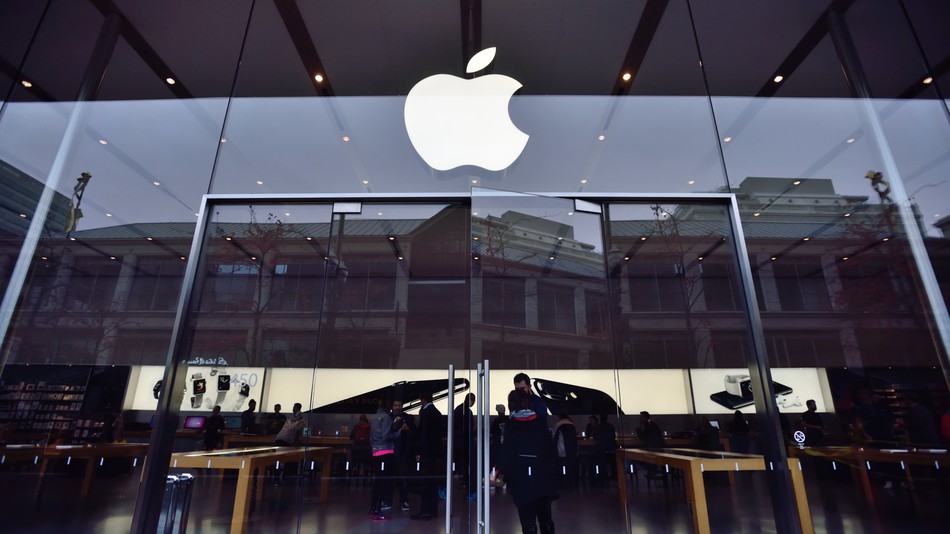Apple is suing Qualcomm, maker of the iPhone’s baseband processor (the modem for connecting to mobile networks), for $1 billion. The tech giant accuses Qualcomm of withholding payments to Apple in “retaliation” for cooperating with investigators.

Apple noted that upgrading from the iPhone’s memory — 128 GB to 256 GB — results in Qualcomm collecting a larger royalty. The company said that it has been overcharged billions of dollars on “Qualcomm's illegal scheme.”
The lawsuit comes after a complaint against Qualcomm earlier in the week by the FTC focused on its licensing business. The company is the primary supplier of modern chips used on phones to connect to cellular networks, and it extracts licensing fees to almost every smartphone.
A significant share of the FTC’s allegations centered on Qualcomm’s relations with Apple. It said that Qualcomm set an exclusivity agreement with Apple from 2011 until 2016. Qualcomm provided “billions” in rebates to Apple during the arrangement. However, if Apple purchased modem chips from another chip supplier during that time, it would face penalties and lose out on Qualcomm’s rebate payments.
With the iPhone 7, Apple introduced Intel modems in some of the devices, but that choice cost the company rebate money from Qualcomm.
In a statement, Apple said that Qualcomm has been charging royalties “for technologies it has nothing to do with.” Additionally, Apple said that Qualcomm collects five times that of other device’s “cellular patent licensors” combined.
The lawsuit shows us a glimpse of the deal-making that occurs with the world’s most popular technology. While patent and design lawsuits happen occasionally, a valuable company like Apple going after one of its partners is something that most of us couldn’t have predicted.
Last month, South Korea fined Qualcomm $890 million for monopolistic tactics. Qualcomm’s stock dropped nearly 2.5% following Apple’s announcement.
Below is Apple’s full statement:
For many years, Qualcomm has unfairly insisted on charging royalties for technologies they have nothing to do with. The more that Apple innovates with unique features such as TouchID, advanced displays, and cameras, to name just a few, the more money that Qualcomm collects for no reason and the more expensive it becomes for Apple to fund these innovations. Qualcomm built its business on older, legacy standards but reinforces its dominance through exclusionary tactics and excessive royalties. Despite being just one of [more than] a dozen companies who contributed to basic cellular standards, Qualcomm insists on charging Apple at least five times more in payments than all of the other cellular patent licensors we have agreements with combined.
To protect this business scheme, Qualcomm has taken increasingly radical steps, most recently withholding nearly $1B in payments from Apple as retaliation for responding truthfully to law enforcement agencies investigating them.
Apple believes deeply in innovation and we have always been willing to pay fair and reasonable rates for patents we use. We are extremely disappointed in the way Qualcomm is conducting its business with us, and unfortunately, after years of disagreement over what constitutes a fair and reasonable royalty, we have no choice left but to turn to the courts.
Here is Qualcomm’s statement:
While we are still in the process of reviewing the complaint in detail, it is quite clear that Apple’s claims are baseless. Apple has intentionally mischaracterized our agreements and negotiations, as well as the enormity and value of the technology we have invented, contributed, and shared with all mobile device makers through our licensing program. Apple has been actively encouraging regulatory attacks on Qualcomm’s business in various jurisdictions around the world, as reflected in the recent KFTC decision and FTC complaint, by misrepresenting facts and withholding information. We welcome the opportunity to have these meritless claims heard in court, where we will be entitled to full discovery of Apple’s practices and a robust examination of the merits.
Advertisement
Learn more about Electronic Products Magazine





